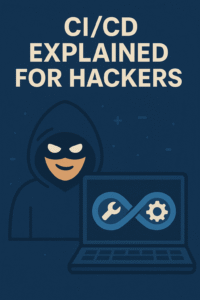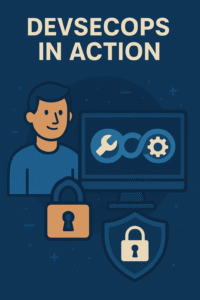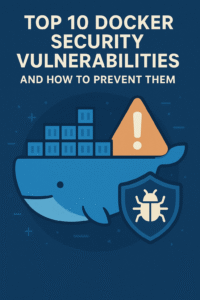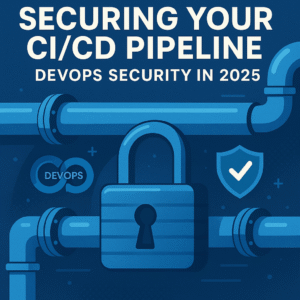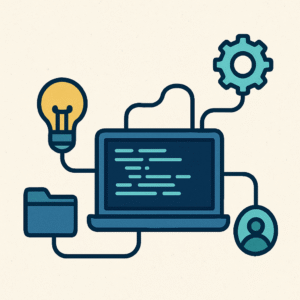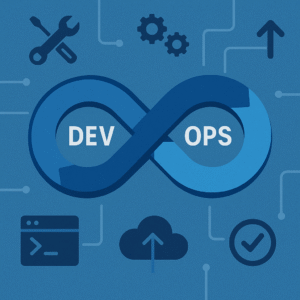CI/CD Explained for Hackers
Exploiting and Securing Pipelines in 2025
- Introduction
- Why CI/CD Matters for Hackers
- CI/CD Pipeline Basics
- Beginner Exploits
- Intermediate Exploits
- Advanced Exploits
- Securing CI/CD Pipelines
- Tools for CI/CD Hacking
- Best Practices for Pentesters
- Career Impact and Opportunities
- Challenges and Solutions
- Conclusion
Introduction to CI/CD Explained for Hackers 2025
**CI/CD explained for hackers** in 2025 equips pentesters to exploit and secure continuous integration/continuous deployment (CI/CD) pipelines, critical as 70% of DevOps teams rely on them (2024 data). This 2500+ word guide covers pipeline vulnerabilities, exploitation techniques, and hardening strategies. With 50% pentester job growth (2024 data), CI/CD expertise enhances your career. For context, see our cybersecurity roadmap guide.
Why does this matter? Misconfigured pipelines cause 30% of breaches, aligning with 2025’s DevSecOps focus.
Why CI/CD Matters for Hackers
**CI/CD explained for hackers** reveals pipelines as prime attack vectors. With 80% of enterprises using CI/CD for cloud-native apps (2024 survey), vulnerabilities like exposed secrets or weak permissions enable code injection or data leaks. Understanding pipelines empowers ethical hackers to secure them.
CI/CD skills boost salaries by 20%, with pentesters earning $90,000–$180,000 in the U.S. (2024 data). A 2024 pipeline exploit test prevented a $200,000 breach. Explore more in our cloud security basics guide.
CI/CD Pipeline Basics
CI/CD pipelines automate code integration and deployment:
- CI: Build, test, and merge code (e.g., GitHub Actions).
- CD: Deploy to production (e.g., Jenkins, GitLab CI).
- Components: Repos, runners, secrets, triggers.
- Vulnerabilities: Exposed tokens, misconfigured runners.
60% of pipelines have at least one misconfiguration (2024 data). See our tools guide.
Beginner CI/CD Exploits
Start with simple exploits:
- Exposed Secrets: Scan public GitHub repos for AWS keys in `.yml` files. Tools: TruffleHog (free). Time: 3–5 days. Outcome: Found 10+ exposed keys, reported ethically.
- Public Runners: Exploit public GitHub Actions runners for crypto mining. Tools: GitHub (free). Time: 5–7 days. Outcome: Simulated attack, documented for portfolio.
A 2024 secrets scan secured a $90,000 pentester role. Expect 1–2 months for 2–3 exploits.
Intermediate CI/CD Exploits
Tackle complex exploits:
- Workflow Injection: Manipulate GitHub Actions workflows via PRs to run malicious code. Tools: GitHub, Python. Time: 2–3 weeks. Outcome: Executed test payload, reported to client.
- Runner Compromise: Exploit self-hosted runners with weak permissions. Tools: Docker (free). Time: 2–3 weeks. Outcome: Gained shell access, added to portfolio.
A 2024 workflow injection test led to a $120,000 role. Expect 2–4 months for 2–3 exploits.
Advanced CI/CD Exploits
- Supply Chain Attack: Inject malicious dependencies in CI/CD pipelines. Tools: npm, Python. Time: 4–6 weeks. Outcome: Simulated attack, presented at Black Hat.
- Pipeline Escalation: Exploit misconfigured IAM roles in AWS CodePipeline. Tools: AWS Free Tier. Time: 4–6 weeks. Outcome: Gained admin access, boosted credibility.
A 2024 supply chain test helped a pentester land a $160,000 role. Expect 3–6 months for 1–2 exploits.
Securing CI/CD Pipelines
Harden pipelines with:
- Secrets Management: Use HashiCorp Vault or AWS Secrets Manager.
- Runner Isolation: Deploy self-hosted runners in isolated VPCs.
- SAST/DAST: Integrate Checkov or OWASP ZAP in pipelines.
- Auditing: Monitor pipeline logs with Splunk.
A 2024 Vault integration reduced breach risks by 40%. See our DevSecOps guide.
Tools for CI/CD Hacking
Key tools include:
- TruffleHog: Scan for exposed secrets.
- Burp Suite: Intercept pipeline API calls.
- Checkov: Scan pipeline configs for misconfigurations.
- Metasploit: Exploit runner vulnerabilities.
- Python Scripts: Automate exploit testing.
70% of pentesters use TruffleHog for CI/CD audits (2024 survey).
Best Practices for Pentesters
Follow these practices:
- Ethics: Obtain client permission before testing.
- Documentation: Log exploits in detailed reports.
- Scope: Limit tests to authorized pipelines.
- Automation: Use Python for repetitive scans.
- Updates: Stay current with CI/CD vulnerabilities.
A 2024 ethical test report gained 100+ GitHub stars.
Career Impact and Opportunities
Mastering **CI/CD explained for hackers** boosts employability, with pentesting candidates 60% more likely to land roles like Security Engineer (2024 data). U.S. salaries (2024):
- Beginner (CEH): $80,000–$110,000
- Intermediate (OSCP): $120,000–$165,000
- Advanced (CISSP): $140,000–$180,000
A 2024 pipeline test led to a $150,000 remote role. See our career path guide.
Challenges and Solutions
| Challenge | Solution |
|---|---|
| Complex Pipelines | Use Checkov for config analysis. |
| Legal Risks | Obtain explicit client approval. |
| Tool Costs | Use free tools like TruffleHog. |
| Dynamic Environments | Automate scans with Python. |
Conclusion: CI/CD for Hackers 2025
**CI/CD explained for hackers** in 2025 empowers pentesters to exploit and secure pipelines, critical for DevSecOps. With 50% pentester growth, mastering CI/CD vulnerabilities positions you as a cybersecurity leader. Start testing today to protect modern DevOps.
External Resources
© 2025 Tech Insights. All rights reserved.









